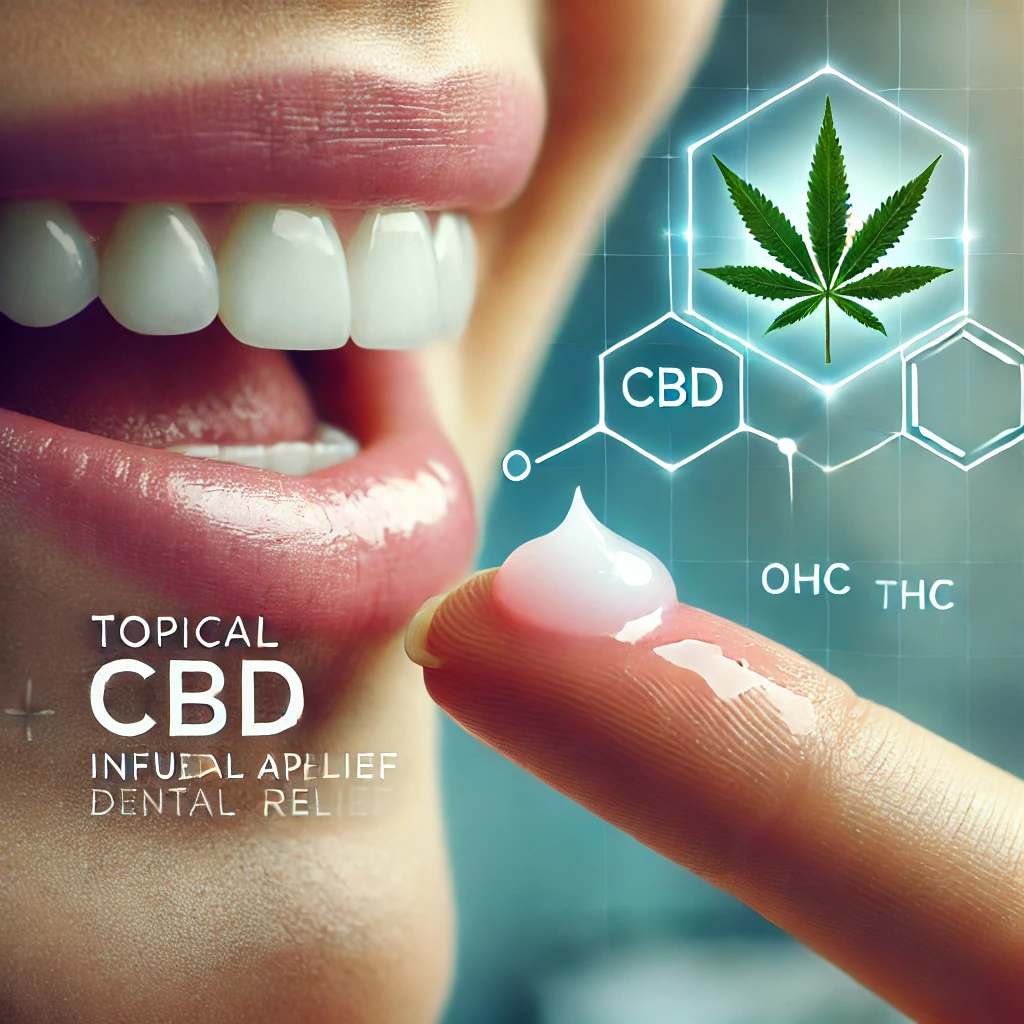Cannabis And Pain
Understanding Cannabinoids in Dental Pain Management
Cannabinoids, particularly cannabidiol (CBD) and tetrahydrocannabinol (THC), interact with the endocannabinoid system (ECS) in the human body. The ECS plays a crucial role in regulating pain and inflammation, making cannabinoids a potential option for dental pain relief. After dental procedures, inflammation and pain are common, and cannabinoids may help alleviate these symptoms by modulating the body’s pain response.

Topical Application of Cannabinoids
One of the most effective methods for using cannabinoids in dental pain relief is through topical application. Topical formulations, such as CBD-infused gels or creams, can be applied directly to the affected area. For instance, after a tooth extraction, applying a cannabinoid gel to the gums may reduce localized pain and inflammation. This method allows the cannabinoids to be absorbed through the skin and directly target the painful area without entering the bloodstream, thereby minimizing systemic side effects.
Real-Life Example:
Consider a patient who just underwent wisdom tooth extraction. Instead of relying solely on traditional painkillers, they might use a CBD gel to soothe the sore gums, experiencing noticeable relief within minutes without the grogginess that often accompanies oral pain medications.
Oral Ingestion of Cannabinoids
Oral ingestion is another method for cannabinoid-based dental pain relief. This approach involves consuming CBD or THC through oils, capsules, or edibles. When ingested, cannabinoids are metabolized by the liver and enter the bloodstream, providing systemic relief from pain. However, this method may take longer to show effects compared to topical applications.
Real-Life Example:
A patient recovering from a root canal might choose to take a CBD capsule for pain management. While it may take up to an hour to feel the effects, the relief is typically more prolonged, helping the patient manage pain throughout the day.
Potential Side Effects
While cannabinoids offer a promising alternative to traditional pain management, they are not without side effects. Some of the most common side effects include xerostomia (dry mouth), dizziness, and drowsiness. These effects are typically mild but can vary depending on the dosage and the individual’s sensitivity to cannabinoids.
Real-Life Example
: If a patient uses a high-dose CBD oil after dental surgery, they might experience dry mouth, making it important to stay hydrated and monitor their dosage to minimize discomfort.
Conclusion
Cannabinoid-based treatments represent a novel approach to dental pain management, particularly in the aftermath of dental procedures. Whether through topical application or oral ingestion, cannabinoids offer a natural alternative that can help reduce pain and inflammation. However, patients should be aware of potential side effects such as dry mouth and dizziness, and consult with their dentist or healthcare provider to determine the most appropriate dosage and method of application.